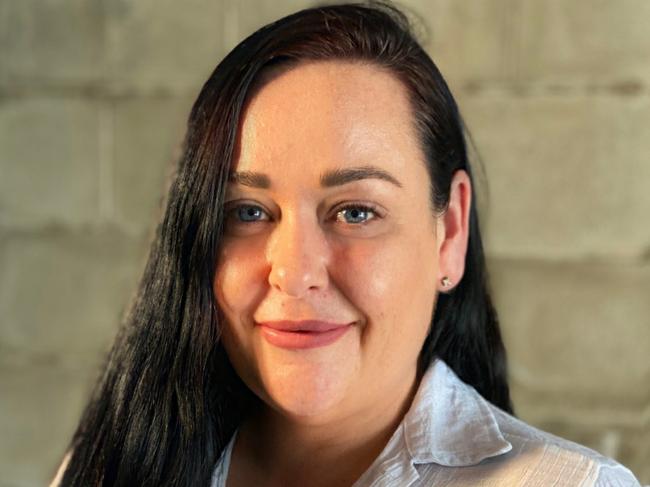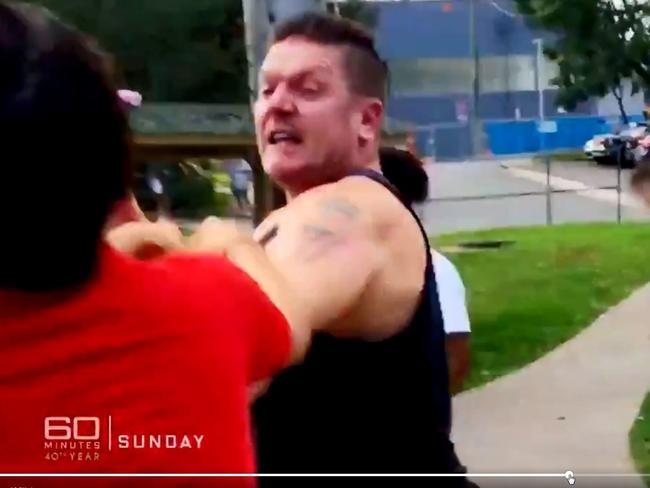Bullying: when parents should intervene and when to involve the law
More than a third of school principals say bullying is a problem in their school. Here’s expert advice for parents.
SmartDaily
Don't miss out on the headlines from SmartDaily. Followed categories will be added to My News.
A new school year often brings new classmates, and while some children gain friends, others gain bullies.
As a parent in this scenario, it can be tempting to protect your child at all costs but experts say it’s important to know when to take direct action and when to support from the sidelines.
More than a third (37 per cent) of Australian principals say intimidation and bullying among students is at least a weekly occurrence at their school, according to the latest OECD Teaching and Learning International Survey in 2018.
Others report weekly instances of physical injury caused by violence (7 per cent), unwanted electronic contact among students (16 per cent), and students posting hurtful information about peers on the internet (11 per cent).
IDENTIFYING A PROBLEM
Griffith University School of Applied Psychology’s Dr Jaimee Stuart says parents may not realise their child is being bullied, as some keep this to themselves or do not recognise they are being bullied.
“Often the most harmful bullying behaviours are the ones that are insidious or hard to detect such as leaving someone out deliberately, spreading rumours or being sarcastic and undermining,” Stuart says.
“Bullying may also come from someone thought of as a friend, or it may be masked as ‘making fun’ and the victim treated as though they can’t take a joke.”

Stuart recommends looking out for changes in your child’s behaviour – from being quick to anger or refusing school to no longer engaging in discussion about thoughts and feelings – then investigating what is going on.
Other signs to look out for, according to yourtown and Kids Helpline, include:
* not wanting to go to school, clubs or activities they previously enjoyed
* increased complaints of feeling unwell
* spending more time alone or unexpected major changes in friendship groups
* evidence of physical harm to them, their clothing or their things (e.g. books)
* changes in personality or mood
* changes in eating or sleeping habits
* spending more (or much less) time on their devices or being more secretive when using them.
TALKING TO YOUR CHILD
If you find out your child is being bullied, Stuart advises not letting your own emotions take centrestage, as this can add to the child’s distress.
“Work through whatever anger, sadness, anxiety and other very normal feelings a parent may have, but to do this in safe ways with other supportive adults or mental health professionals,” she says.
Stuart also warns against telling children that bullying is a normal part of growing up.
“Even though it is common, that does not make it OK, and all forms of bullying can be harmful, not just the physical and verbal, but also the relational,” she says.
Kimberley Harper, Parentline manager at yourtown, which also runs Kids Helpline, recommends starting the conversation in a quiet and comfortable space, such as on a drive, while going for a walk, or while your child is doing another activity such as drawing.
She advises asking open-ended questions to let them tell the full story.
“Validate their emotions and ask them how they would like you to help,” she says.
If they are unsure, give two or three options they could try.

“If there are any concerns about the child’s immediate safety, parents should intervene,” she says.
“However, if the concern is not immediate, aim to keep the child’s wishes at the centre of the decision-making process.
“Support them to use their own decision making and problem solving skills to resolve the situation.”
TALKING TO THE BULLY
Most bullies are not bad children, Stuart says.
They may be misguided, dealing with other issues, or unaware what they are doing is wrong.
“(The) solution does not have to involve punishment or humiliation of the bully or the bully’s parents, and in most instances helping the bully to be empathetic and understand the consequences of their actions is a much more likely to result in change,” she says.
“Just like good support can help a victim of bullying, it can also help a perpetrator of bullying.”
IF YOUR CHILD IS THE BULLY
Although it can be hard to find out your child is potentially harming others, Harper says it’s important to get the whole story from them before judging.
“Try to remain curious and empathetic,” she says.
“Tell the child what you’ve heard and invite them to share their version of events.
“Validate their emotions and help them to understand how their actions might have felt for the other child.”
She recommends asking them to come up with ways to resolve the situation.
TALKING TO THE SCHOOL
Before scheduling time with teachers, Stuart recommends reading the school’s bullying policy.
Even if the incident didn’t happen on school grounds – for example, cyber-bullying – if it involved children at the school, this is normally still covered.
“Be sure that you have accounts of the bullying that you can provide either in writing or verbally in a meeting, and be clear the actions you would like to take,” she says.
GETTING THE LAW INVOLVED
Youth Law Australia senior solicitor Meredith Hagger says parents should consider reporting bullying to police after they have tried other options – such as blocking bullies on social media or talking to the school – or if there is a safety concern.
She says free and confidential legal advice is available from Community Legal Centres, Legal Aid Commissions and Youth Law Australia.
Children facing cyber-bullying or image-based abuse can also contact the eSafety Commissioner.
“Where a young person has suffered harm as a result of bullying, civil legal action may be available however (this) may not always be an effective way of resolving the issues,” she says.

Hagger warns parents against taking matters into their own hands as they may be “too emotionally involved”.
“We have seen cases of parents defaming other parents on social media, being warned off school property and getting physical with other parents,” she says.
In 2018, footage of Brisbane father Mark Bladen confronting and choking a teenage boy who had taunted his daughter went viral. He copped a $1000 fine.
In 2019, a man was left with broken bones after he was assaulted by the father of a 14-year-old boy who was allegedly bullied by a schoolmate connected to the man. The father is yet to face trial.
Hagger recommends parents involve their child when deciding a course of action.
“After all, their child is going to have to live with the impact and consequences,” she says.




